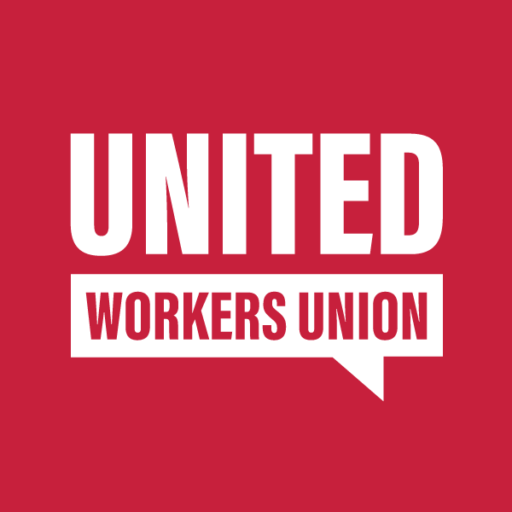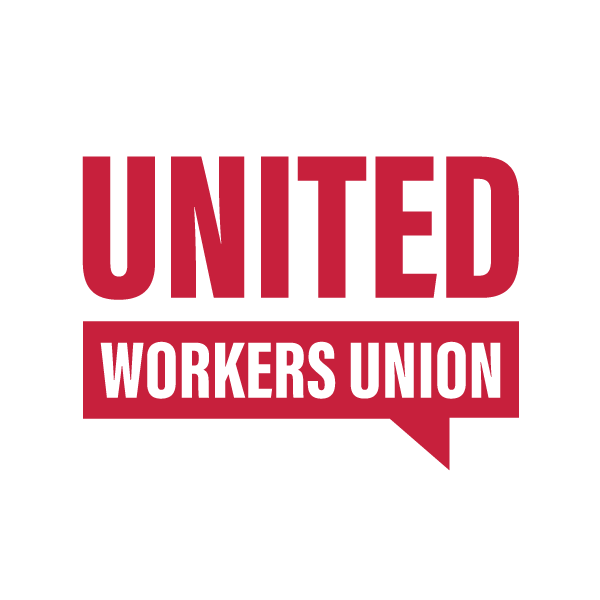Know your rights
United Workers Union members proudly work across a range of essential industries in every corner of the country. Our members’ work reaches millions of people every single day of their lives.
Working people are on the frontline of the coronavirus (COVID-19) threat. We have a responsibility to ensure workers are safe and their rights are protected as this threat grows.
Now is the time for all Australians to get behind the workers who keep our communities running.
United Workers Union believes all workers need significant back-up and support, including from employers and Government, to deal with this global health crisis.
we need to ensure workers don't lose out
We are calling for these commitments to be put in place immediately to ensure workers don’t lose out under this global health crisis:
- If workers cannot work due to coronavirus risks, they should not lose pay
- The Federal Government needs to support workers and the community
- Workers must be entitled to avoid unsafe workplace situations
- Workers must be consulted about employer response to coronavirus
- Workers falling into special categories (including higher risk and carers) must be supported
- Workers must be supplied with appropriate personal protective equipment (PPE)
Read our full statement about support for workers affected by coronavirus issues here.
Frequently Asked Questions
Financial and other support
The COVID-19 disaster payment is a lump sum payment to help workers who are unable to earn an income because of a COVID-19 lockdown or period of restricted movement.
You can find more information on the Services Australia ‘COVID-19 Disaster Payment’ website.
To get the COVID-19 disaster payment you must meet the following criteria:
- You are an Australian resident or hold an eligible working visa.
- You are 17 years or older.
- You are not currently receiving any Centrelink or Department of Veterans Affairs income support payment.
- You are not getting the Pandemic Leave Disaster Payment, a state or territory pandemic payment or a state small business payment for the same period.
- You live in, work from or have visited a Commonwealth-declared COVID-19 hotspot.
- You live, work from or have visited a location subject to a state or territory restricted movement order.
- You had paid employment, but you are unable to go to work on or after day 8 because of movement restrictions.
- You have lost income on or after day 8 and do not have appropriate paid leave entitlements.
You can find more information on the Service Australia ‘General eligibility rules’ website.
You can check if your area has been declared a hotspot by checking the Department of Health listing of current hotspots.
One of the Commonwealth Government’s eligibility criteria to receive the COVID-19 Disaster Payment is that you must have less than $10,000 in liquid assets, which include any funds readily available to you in cash or savings, or assets that can easily be changed into cash.
During specific times when there have been long or severe lockdowns, the Government has waived this liquid asset test. For example, the test has been waived for residents of NSW and Victoria who have been affected by the recent lockdowns.
If you live outside of NSW and Victoria, please contact Services Australia to find out whether you need to pass the $10,000 liquid asset test.
In general, residents in affected areas become eligible for the payment after their area has had a public health lockdown or period of restricted movement for more than 7 days. This means you will be able to claim these payments from day 8 onwards.
There are times when the Commonwealth may waive this rule, as it did recently in Victoria, so make sure you check the Services Australia COVID-19 Disaster Payment website for the latest information, or contact Services Australia directly.
How much you receive will depend on the length of the lockdown.
For the first and second periods of a restricted lockdown order, you are eligible to receive:
- $325 per week, if you lost less than 20 hours of work per week.
- $500 per week, if you lost 20 or more hours of work per week.
For the third period and beyond of a restricted movement order you are eligible to receive:
- $375 per week if you lost:
- between 8 and 20 hours per week OR;
- A full day of your usual hours per week, where ‘a full day of work’ is defined as the hours workers were scheduled to work but could not because of a restricted movement order, including not being able to attend a full-time, part-time, or casual shift of less than 8 hours.
- $600 per week of lockdown if you lost 20 hours or more of work per week.
If you are in a relationship, it can affect the type of payment you receive and the amount you receive. For more information on how your relationship may affect your payments, visit the Services Australia ‘Your relationship status’ website.
Claims for specific periods must be submitted within specific timeframes. You can find out the opening and closing dates for claims for specific periods here.
If you are an Australian resident, you must claim the COVID-19 Disaster Payment online through a MyGov account linked to a Centrelink online account.
If you are an eligible visa holder, you must claim by calling the Emergency information line. If you require a translator, you can call using the Multilingual phone service.
If you have been affected by the pandemic and the lockdown, and you would like to talk to someone, please reach out to one of the services below:
- For the general population: Lifeline Australia, Beyond Blue, Sonder. Lifeline has also created a ‘Mental health and wellbeing during the COVID-19 outbreak’ information page which has useful tips on looking after your mental health during this time.
- For vulnerable people, including First Nations peoples, LGBTQIA+ peoples, and culturally and linguistically diverse communities: Beyond Blue and the Primary Health Networks (PHN). You can find your closest PHN by typing in your address on this locator map.
- For young people: Headspace, Kids Helpline, and the Butterfly Foundation.
- For older people living in isolation: Sonder.
Your rights at work
Traditionally industrial law has recognised a limited right for employers to “stand down” workers when they cannot be usefully employed because of something out of the employer’s control.
When a lawful stand down applies, workers are usually not entitled to be paid for the period of the stand down. Even if special stand down provisions do not apply because your employer is accessing Jobkeeper-like payments, a stand down can probably occur in a partial sense: that is; only a discrete part of a business or only in relation to certain periods of work.
But for a stand down like this – where the arrangements are complex – each situation will be different, and the lawfulness of the stand down will depend on the circumstances.
Unfortunately, even in COVID-19 under the Fair Work Act stand downs are lawful. Here is a list of steps you can take if you are stood down.
- Clarify the nature of your employment and call your union. That means finding out whether you are being stood down and for how long, or whether you have lost your job.
- If you are being stood down, in some situations workers should still be paid, especially if the worker’s employer is eligible for ‘Jobkeeper-like’ government subsidies (including the recently announced COVID-19 Disaster Payment in NSW and other hotspots). If you are stood down call you union or delegate straight away.
- You should also check if you are employed under an enterprise bargaining agreement (EBA). Your EBA may say that an employer must first make best endeavours to find alternative work before standing you down.
- If you are not stood down but sent home during the lockdown, you could also push for special arrangements, like special leave or working at home arrangements.
No, stand downs should not be indefinite. During the pandemic we expect that longer stand downs might occur but there should be a specified end date (or review period). If you have not been stood down, and have instead lost your job, you may be eligible for redundancy.
You cannot be forced to take annual leave in lieu of being stood down but you can if you want to.
Unfortunately, you cannot access other personal leave like sick leave when on a stand down either.
Workers who lose their job permanently as a result of COVID-19 may be eligible for redundancy pay. So, if you are not just stood down but have been told you have lost your job permanently then you should contact your union. If your employer failed to consult or make reasonable attempts to redeploy, then there also may be potential grounds for unfair dismissal application.
Have you been impacted by Covid-19?
Please take a moment to share your story with us.

